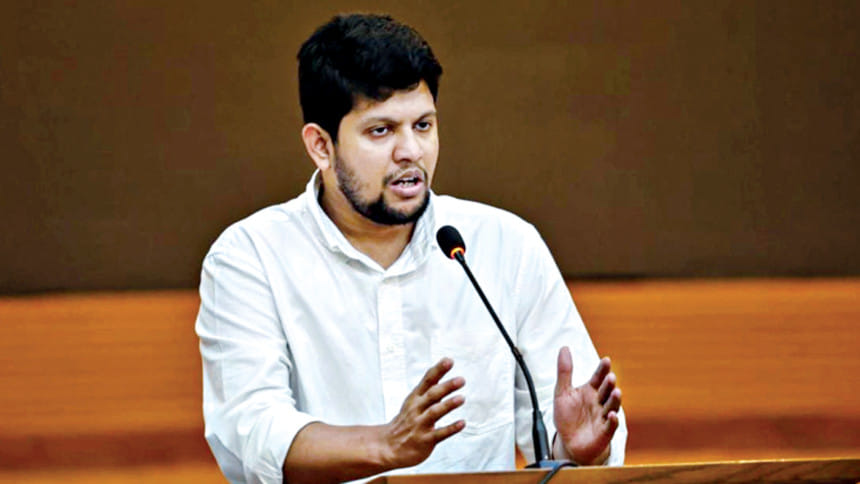‘Journalism must be freed of bad apples’

The ministry will assess whether the cases were filed to harass journalists. If they find proof of harassment, the cases will be scrapped.
Information Adviser Mahfuj Alam yesterday said the government will investigate all media organisations that received licences during the Awami League regime.
"Media outlets were set up to promote narratives supporting extrajudicial killings, enforced disappearances, and torture in the last 15 years," said Alam.
He made the remarks at an event titled "Killings and Torture of Journalists During the Fascist Regime", organised by the Bangladesh Journalists Welfare Trust at the Department of Films and Publications auditorium.
"We will investigate when and how such outlets got licences and how the media stood against the people and contributed to producing yellow journalism," he said.
"If you want good quality journalism that maintains professionalism, you must separate the bad apples from the good," Alam added.
He went on to say, "I am astonished that a few newspapers do not use the phrase 'July mass uprising', choosing the term 'July movement' instead. Instead of acknowledging the people's uprising, they call it a 'regime change'... This is the Indian narrative."
If such practices continue, it won't be the government but the people and victims' families who will confront them, he added.
Alam also said popular outlets will receive more government benefits based on their circulation.
He stressed that the government does not want journalists to write in its favour.
Alam said the information ministry has gotten information on 266 journalists who have been prosecuted in recent times.
He said the ministry will assess whether the cases were filed to harass journalists. "If they find proof of harassment, the cases will be scrapped," he added.
Family members of journalists killed during the July uprising, along with journalists who faced repression under the AL regime, also shared their stories at the seminar.
Shafik Rehman, founding editor of Jai Jai Din, urged the interim government to scrap politically motivated cases filed under the AL government, saying many victims of such cases still suffer mentally and financially due to ongoing legal proceedings.
Amar Desh Editor Mahmudur Rahman said, "The first case under the ICT Act (later DSA) was filed against me during the fascist regime of Hasina."
Fascism and a free media cannot coexist, he added.
Kamal Ahmed, chief of Media Reform Commission, stressed the need for financial autonomy in journalism.
"Media is not a business like others. It doesn't have to be as profitable as a bank. But media outlets must earn enough to sustain themselves. They should be self-sustaining and not reliant on government favours," he said.

 For all latest news, follow The Daily Star's Google News channel.
For all latest news, follow The Daily Star's Google News channel. 



Comments